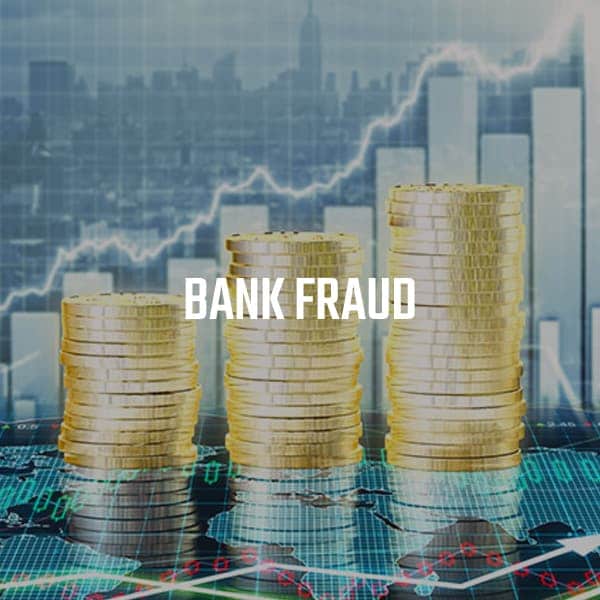The amount of money lost by consumers and financial institutions because of bank fraud is staggering – and those losses are increasing at an equally staggering rate. Data published by the Federal Trade Commission (FTC) shows that consumers reported losing nearly $8.8 billion to fraud in 2022, representing an increase of more than 30 percent over the previous year. Not surprisingly, the potential penalties you face if convicted of federal bank fraud are serious, including a lengthy term of imprisonment. If you received a target letter indicating that you are the target of a federal bank fraud investigation, or you otherwise believe you are being investigated for bank fraud, the best way to protect your rights and your future is to consult with an experienced federal bank fraud defense attorney.
Federal law enforcement agencies and prosecution have the extensive resources of the United States federal government at their disposal when investigating and prosecuting alleged bank fraud. As a target or defendant, you need an experienced attorney on your side who understands how federal investigations and prosecutions work. As a former federal prosecutor himself, attorney David Haas has the invaluable insider knowledge and experience needed to aggressively protect and defend you if you are facing bank fraud allegations. Contact the team today by calling 407-755-7675 or chat with us online any time of the day or night.
What Is Bank Fraud?
Federal bank fraud is governed by 18 U.S. Code § 1344 which defines the crime as knowingly executing, or attempting to execute, a scheme or artifice:
- To defraud a financial institution OR
- To obtain any of the moneys, funds, credits, assets, securities, or other property owned by, or under the custody or control of, a financial institution, by means of false or fraudulent pretenses, representations, or promises.
The bank fraud statute is intentionally broad in scope and has been liberally interpreted by the courts, making it effectively a “catch-all” statute that is used to prosecute any activity that may result in defrauding a federal bank.
What Are Some Common Examples of Bank Fraud?
Because the federal bank fraud statute is far-reaching in scope, there are a virtually unlimited number of “schemes” that may meet the definition of bank fraud. There are, however, some common types of bank fraud, including:
- Check fraud. Check fraud is a type of bank fraud that involves the fraudulent use of checks to obtain money or other assets and may include things such as forging a signature, using stolen checks, altering the amount or the payee, and creating counterfeit checks.
- Credit and debit card fraud. Check and debit card bank fraud involves the use of credit or debit cards to make fraudulent purchases, card “skimming,” using stolen cards, using someone else’s card information without consent, or lying on a credit card application.
- Loan fraud. Loan fraud can be a type of bank fraud when a business or individual lies on a loan application to obtain a larger loan than could possibly be repaid or when a loan applicant uses someone else’s information to obtain a loan.
- Internet fraud. Computer “hacking” often involves accessing someone’s personal and financial account information. When that information is used to access a financial account, it can be a type of bank fraud.
- Accounting fraud. A business may “cook the books,” which refers to creating a false set of accounting ledgers, to obtain a loan that the business is not actually qualified for, amounting to bank fraud.
- Identity theft. Identity theft is often part of a bank fraud scheme. The stolen personal information is used to commit check or credit card fraud, to create or log into an online account, to create forged documents that are then used at a bank, or to use a fraudulent driver’s license or passport at a bank.
Because the definition of “bank fraud” is intentionally broad, it can be alleged under a wide spectrum of circumstances, including many that lack the knowledge required to convict a defendant of bank fraud. In a federal prosecution for bank fraud, the government must show that the defendant knowingly engaged, or attempted to engage, in a bank fraud scheme. If you have been accused of bank fraud, federal bank fraud defense attorney David Haas has the experience and skills needed to build a strong and successful defense, often focusing on the defendant’s lack of knowledge regarding the alleged scheme.
What Are the Potential Penalties If I Am Convicted of Bank Fraud?
If you have reason to believe that you are under investigation for federal bank fraud it is crucial that you take the situation seriously and take action to defend yourself given the potential penalties you face for a conviction. If convicted on a single count of federal bank fraud you face up to 30 years in prison and/or a fine of up to $1 million.
What Are Some Common Defenses Available in a Federal Bank Fraud Prosecution?
It can be extremely stressful to find yourself the target of a federal bank fraud investigation. If that investigation results in criminal charges being filed against you, you should not downplay the seriousness of the situation; however, an experienced federal bank fraud defense attorney may be able to utilize one or more of the following common defenses to avoid a conviction or decrease the severity of your sentence if a conviction is unavoidable:
- No knowledge. To prove that you are guilty of bank fraud, the prosecution must prove that you knowingly took part in a scheme to defraud. Your attorney may focus on your lack of knowledge. For example, if you deposited a counterfeit check, but had no idea the check was fraudulent, your defense may rest on the government’s inability to prove that you had knowledge of the counterfeit nature of the check.
- Illegal search and seizure. It is highly likely that several searches and seizures were conducted during the investigation that led to your arrest for bank fraud. If any of those searches were conducted illegally, the evidence seized may be excluded from trial. For example, if the police failed to obtain a valid warrant prior to conducting a search or the search exceeded the bounds indicated in the search warrant, your attorney may be able to prevent the government from using any evidence obtained during the search.
- Providing substantial assistance. If the evidence against you is substantial, your attorney may discuss the possibility of providing “substantial assistance” to the government in exchange for leniency at sentencing.
Get Help from an Experienced Federal Bank Fraud Defense Attorney
If you received a target letter informing you that a bank fraud investigation is underway, or you have already been charged with federal bank fraud, you need to take immediate steps to protect your rights, your freedom, and your future. Former federal prosecutor David Haas has the experience, resources, and commitment required to protect you and defend you when the federal government is accusing you of federal bank fraud.
Call us at 407-755-7675, chat with us online, or submit our online form today. Because we understand that time is of the essence when federal law enforcement authorities are investigating you, our calls are answered 24 hours a day, allowing you to schedule an appointment as soon as possible to discuss your legal options.

